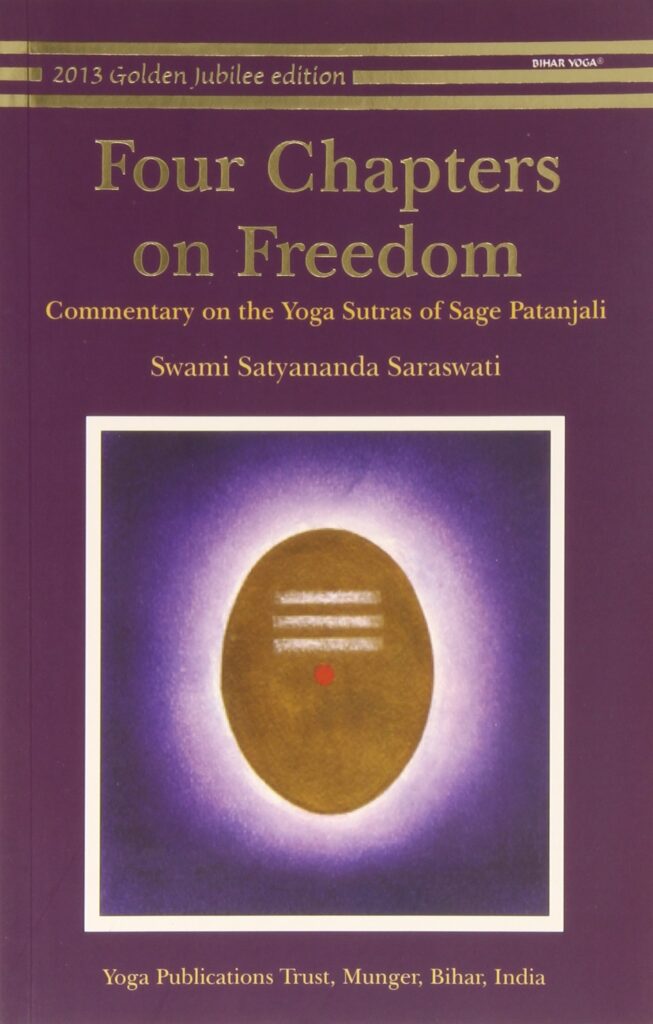Book Review – “Four Chapters on Freedom: Commentary on the Yoga Sutras of Patanjali” by Swami Satyananda Saraswati
Four Chapters on Freedom

This book is a masterpiece of yogic literature. It is a must-read for serious yoga practitioners, scholars, and anyone intrigued by the philosophy of yoga.
URL: ReviewNectar
Author: Swami Satyananda Saraswati
4.7
“Four Chapters on Freedom: Commentary on the Yoga Sutras of Patanjali” by Swami Satyananda Saraswati is a formidable exploration of the ancient wisdom encapsulated in Patanjali’s Yoga Sutras. As a luminary in the field of yoga, Swami Satyananda offers readers a remarkable lens to understand and apply this foundational yogic text.


The Yoga Sutras of Patanjali, compiled around two thousand years ago, represent the very essence of yoga. Comprising of 196 sutras or aphorisms, they serve as a roadmap for the journey of self-realization and spiritual liberation, which is the ultimate aim of yoga.
Swami Satyananda’s commentary on these sutras is profound yet accessible. He deftly unravels the complex philosophies, illuminating the path of Raja Yoga (the royal path), which includes ethical disciplines (Yamas and Niyamas), postural practices (Asanas), breath control (Pranayama), sensory withdrawal (Pratyahara), concentration (Dharana), meditation (Dhyana), and ultimate union (Samadhi).
The book is methodically organized into four sections, each dedicated to one Pada (chapter) of Patanjali’s Yoga Sutras. The sutras are presented in their original Sanskrit form, accompanied by transliteration, translation, and detailed commentary. This structure allows readers to engage with the sutras at a deeper level, fostering an understanding that goes beyond a superficial reading.
What makes this book uniquely insightful is the blend of Swami Satyananda’s deep wisdom, scholarly rigor, and practical experience. His elucidation of complex concepts is lucid and relatable, making the profound wisdom of the Yoga Sutras accessible to modern readers. Additionally, the integration of scientific insights enhances the relevance of these ancient teachings in contemporary life.
However, like many philosophical texts, “Four Chapters on Freedom” demands a commitment to deep, reflective reading. Its richness may not be fully appreciated in a hurried read, and its depth warrants revisiting. For those embarking on or deepening their yoga journey, this text offers a treasure trove of insights, but it requires patience, focus, and openness.
In conclusion, “Four Chapters on Freedom: Commentary on the Yoga Sutras of Patanjali” is a masterpiece of yogic literature. It serves as a bridge between ancient wisdom and modern seekers, guiding readers on the path to self-realization and spiritual freedom. It is a must-read for serious yoga practitioners, scholars, and anyone intrigued by the philosophy of yoga.



